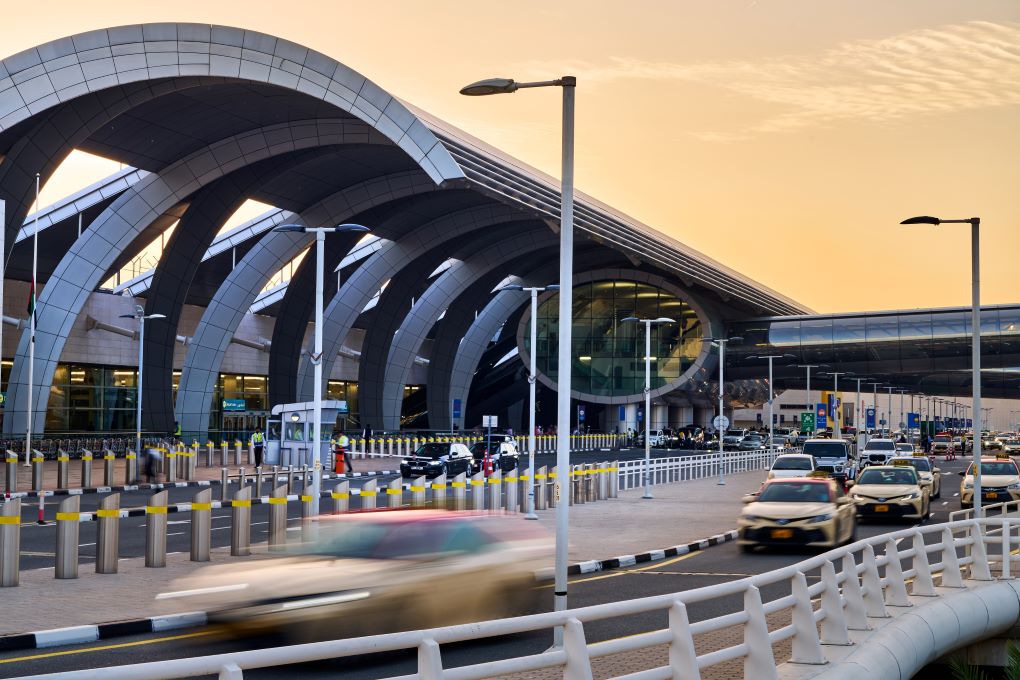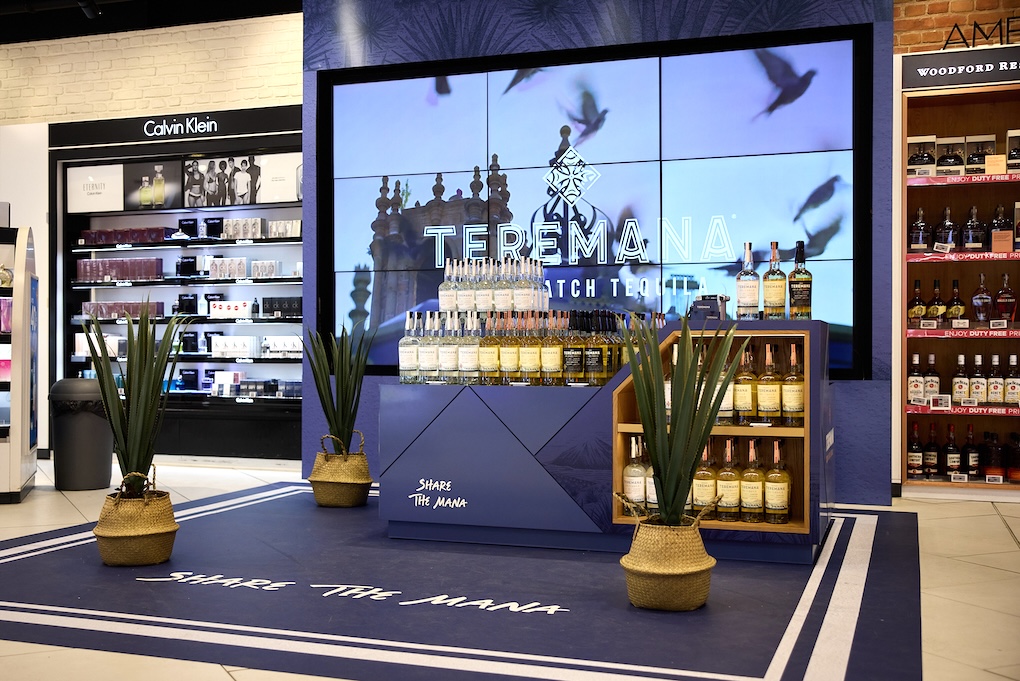The ACI Tracker File examines the 100ml rule implementation around the world, as well as clarifying the duty free situation in each country – click to access the file |
INTERNATIONAL. Tomorrow, 1 March, is crunch day for the global duty free channel, as many countries introduce new aviation security regulations in line with those in practice in the EU, EEA and Switzerland and as recommended by ICAO.
But with some countries opting for later implementation dates – 31 March in Australia, for example – and interpretations varying, there is potential for real consumer confusion in coming days.
On the eve of the big changes The Moodie Report presents the latest, invaluable Airports Council International (ACI) “˜Tracker’ of the situation country-by-country. We’re also grateful for the outstanding regular updates being produced by the Asia Pacific Travel Retail Association (APTRA) and the European Travel Retail Council (ETRC).
And we summarise the latest consumer media coverage around the world to help gauge public reaction to the new regulations. The persisent observation we make – and one perpetuated by the industry in its own communication – is that the duty free ‘exemption’ to the 100ml personal liquids allowance is time and again buried far down the story. Consumers read headlines, and first paragraphs, not always the full story. It’s a simple but key lesson – do not bury duty free in the small print.
Click here for the ACI Tracker which examines the 100ml rule implementation around the world as well as clarifying the duty free situation in each country.
Below is a snapshot of international media coverage from the past 36 hours.
COUNTRY: South Korea
Media: Chosun Ilbo
Headline: New Flight Rules on Liquids Start March 1
Excerpt: From March 1, air passengers will be forbidden from carrying containers of more than 100ml of liquid, gel or spray on international flights, and liquids of less than 100ml must be checked by security officials. If passengers don’t want oversize liquid items seized, they must send them by cargo.
An official with the Civil Aviation Safety Authority said that to avoid last-minute boarding problems, it’s best to plan ahead. Passengers are allowed to board with liquids or gels totalling less than 1 litre in containers smaller than 100ml. The containers must be sealed in a transparent plastic bag no bigger than 20cm by 20cm.
Duty free items can also be carried on board regardless of amount if sealed in designated plastic bags provided by duty free shops and presented to security officials. Receipts are needed to prove the items were purchased in duty free shops.
COMMENT: Accurate enough but as always – and our own industry is no better in its own communication – the duty free “˜exemption’ is mentioned several paragraphs down. One of the first rules of media is to get the key facts up front.
COUNTRY: Taiwan
Media: China Post
Headline: CAA restricts liquids, gel from carry-on luggage
Excerpt:The Civil Aeronautics Administration (CAA) tomorrow will begin restricting international air passengers from carrying liquids onboard flights departing from or transiting international airports in Taiwan. All liquids, gel, or aerosol substances that passengers bring in their carry on baggage must be held in containers no more than 100 cubic centimetres in volume.
In addition, the containers must be placed in a clear, resealable plastic bag no more than one litre in volume. Items that fall within the restriction include drinks, lotion, toothpaste, hair gel, and contact lens solution. Items purchased in duty free stores beyond the immigration checkpoint also do not fall within the restriction.
For the month beginning tomorrow, plastic bags will be provided at airline check-in counters and at security inspection for the convenience of passengers.
CAA advises all international passengers to arrive at the airline check-in counter three hours before their flight departs so they can have ample time to pass through security inspection. CAA warned all passengers who will be travelling abroad to stay informed of any local restrictions on carrying liquids.
COMMENT: Accurate – but again notice the story’s “˜lead’ – it’s a long time before the traveller, if they read that far, finds out they can still buy duty free liquids.
 |
COUNTRY: Hong Kong, China
Media: South China Morning Post
Headline: Warning of airport delays as HK tightens security
Excerpt: Air travellers have been warned to expect delays next month when tough security measures come into effect limiting the amount of liquids that can be carried on board. The Civil Aviation Department said all liquids, gels and aerosols in cabin baggage would have to be carried in containers with a capacity not greater than 100 millilitres.
All containers have to be placed in one transparent re-sealable plastic bag of a maximum capacity not exceeding 1 litre. The bag will have to be presented separately from other luggage for examination at screening points.
Travellers will still be able to make duty free purchases. The measures, which take effect on March 21, will comply with guidelines issued by the International Civil Aviation Organization (ICAO) in December after a failed terrorist plot to smuggle liquid explosives onto aircraft in England.
Simon Li Tin-chui, Chief Operations Officer of the department, said they decided to enforce the regulations from next month after considering the time needed to arrange the safety measures. “We had to inform all concerned parties such as airline operators and security service providers.”
The deputy chairman of the Legislative Council’s security panel, James To Kun-sun, said the measures were not introduced immediately after the security scare last year because Hong Kong was not directly facing a threat.
“It seems the measures are being introduced simply because Hong Kong is an aviation hub where many flights to and from the UK and US – high-risk countries – make stops,” he said.
Mr Li said: “The regulation will be applied to both transit and departing passengers. We do expect there will be some delays, especially in the initial period of implementation. Passengers who refuse to dispose [of] restricted articles when requested [to] will be refused entry to the restricted area.”
COMMENT: Well-written as one would expect from the South China Morning Post and squares off the duty free issue quickly. Note the interesting insight into Asian thinking about this being a UK and US problem for which other countries are suffering.
COUNTRY: Australia
Media: The Courier-Mail
Headline: Slow lane of the sky – Queues set to lengthen as security is tightened at nation’s international airports
Excerpt: Frustrating queues at international passenger terminals are set to get worse as Australian airports gear up for a new security crackdown. Passengers travelling overseas are being told to be patient ahead of extra screening and safety measures to be introduced at international airports – including Brisbane, Cairns and Townsville – from March 31.
Airport security screeners across the country will begin training this week to enforce tough new restrictions on liquids, aerosols and gels being carried on board flights. Under the new rules, passengers on all flights to and from Australia will be limited to carrying only small containers of drinks, creams, perfumes, sprays, gels and toothpaste – no more than 100ml.
The containers also must be sealed in a transparent one-litre plastic bag. Exemptions would be made for duty free purchases, medication and baby milk. But the new measures a response to a foiled attempt by terrorists in Britain last year to blow up planes using liquid explosives – are likely to add to already lengthy airport queues blamed on rapid growth in passenger numbers and tightened security since the September 11 terror attacks.
Comment: Australia has opted for 31 March as its implementation date. The real storm here won’t be over goods being taken out of the country but those being brought in (or not brought in, thanks to the government’s insistence on “˜last port of call’ screening and gate delivery).
 |
COUNTRY: Fiji
Media Fijilive; BBC Monitoring Asia Pacific
Headline: Fiji airports to step up hand luggage security from 1 March
Excerpt: International passengers travelling out of Fiji’s two main airports will face new security control measures from Thursday 1 March. The Ministry of Transport, Works & Energy says the measures will be applied only to cabin baggage.
Passengers carrying liquids, gels, aerosols in their cabin baggage will be required to have them security screened. The liquids will also need to be carried in containers of not more than 100ml and presented in transparent plastic bags for screening purposes.
Passengers will have to show evidence they bought liquids at the airport duty free shops or onboard and must be carried in sealed plastic bags in order to be exempted.
Comment: Loose wording over the duty free exemption won’t help consumer confidence.
 |
COUNTRY: Japan
Media The Asahi Shimbun
Headline: Ban on bringing aboard liquids covers all international flights
Excerpt: In a move aimed at further thwarting terrorist attacks, passengers on all international flights will be prohibited from bringing aboard liquids in containers larger than 100 millilitres starting Thursday, officials said. The ban on liquids currently covers only flights to the United States.
But authorities decided that the scope of the aviation security rules should be widened for all international destinations from airports in Japan, the officials said. That means drinks, cosmetics, toothpaste, creams and other liquids in containers with a capacity exceeding 100ml cannot be brought onto the plane, the officials said.
Liquids in smaller containers will be allowed in carry-on baggage if they fit into transparent, resealable plastic bags with a maximum capacity of 1 litre.
The only exceptions to the ban on carry-on liquids are food and milk for babies, medicines, contact-lens solution and items bought at duty free shops in the airports. At least 10 countries and regions, including Japan, the United States, the European Union, South Korea, Hong Kong, Canada and Australia, are expected to adopt the enhanced security rules in March.
Under current regulations applied to commercial passenger flights from Japan to the United States, as well as Guam and Saipan, alcoholic beverages, makeup and several other items bought at duty free shops inside airports cannot be taken on board. Starting Thursday, those items can be taken in carry-on bags.
Comment: Well-written, carefully and logically explained. But if you were a consumer would you be much the wiser? This is complex matter involving a) changing regulations and b) ones that vary by destination. We understand, incidentally, that Japan will not allow liquids over 100ml, however packaged, to be brought into the country by passengers transiting onwards internationally (domestic transit will be permitted).






